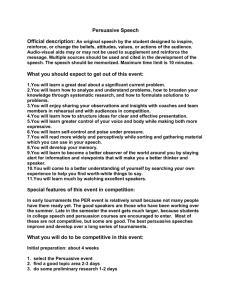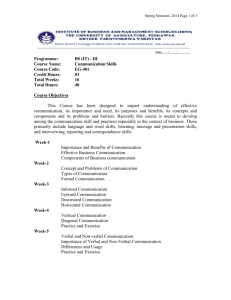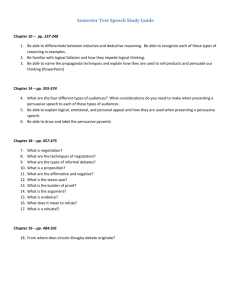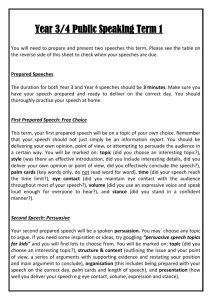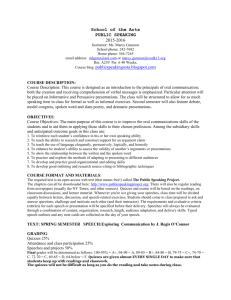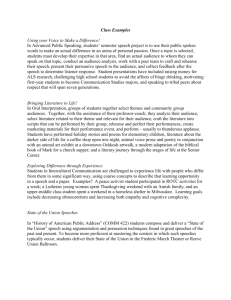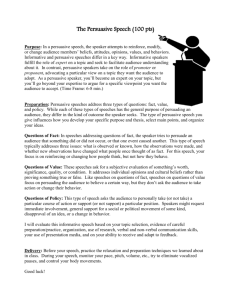INTRO TO SPEECH SYLLABUS Spring Semester 2014 CONTACT
advertisement
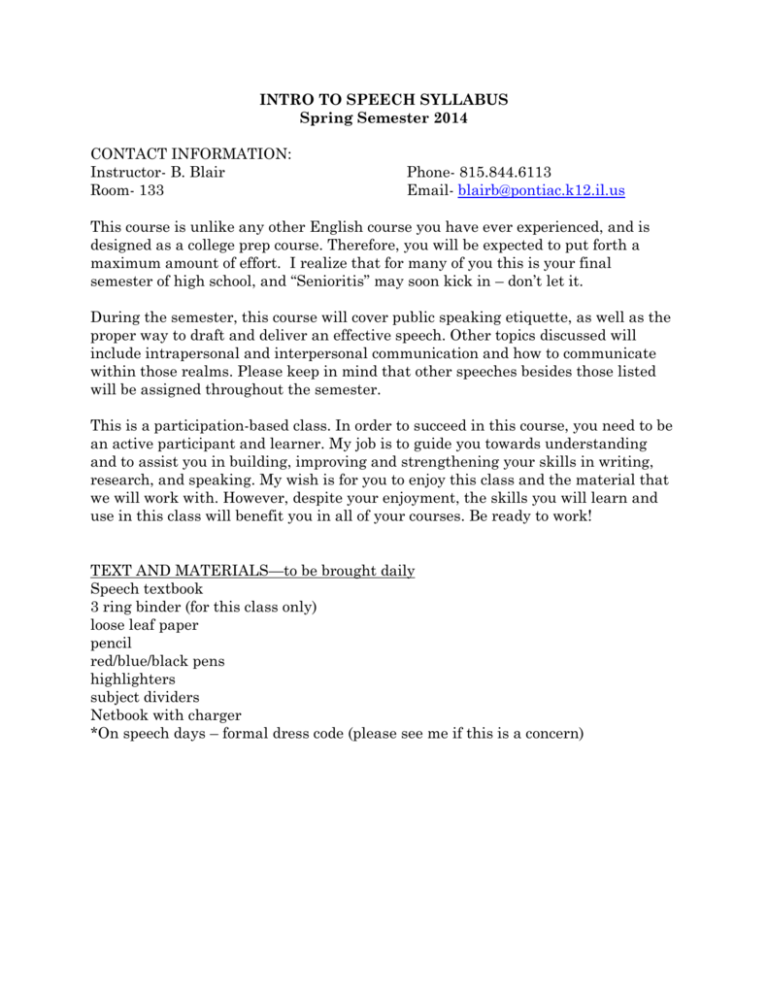
INTRO TO SPEECH SYLLABUS Spring Semester 2014 CONTACT INFORMATION: Instructor- B. Blair Room- 133 Phone- 815.844.6113 Email- blairb@pontiac.k12.il.us This course is unlike any other English course you have ever experienced, and is designed as a college prep course. Therefore, you will be expected to put forth a maximum amount of effort. I realize that for many of you this is your final semester of high school, and “Senioritis” may soon kick in – don’t let it. During the semester, this course will cover public speaking etiquette, as well as the proper way to draft and deliver an effective speech. Other topics discussed will include intrapersonal and interpersonal communication and how to communicate within those realms. Please keep in mind that other speeches besides those listed will be assigned throughout the semester. This is a participation-based class. In order to succeed in this course, you need to be an active participant and learner. My job is to guide you towards understanding and to assist you in building, improving and strengthening your skills in writing, research, and speaking. My wish is for you to enjoy this class and the material that we will work with. However, despite your enjoyment, the skills you will learn and use in this class will benefit you in all of your courses. Be ready to work! TEXT AND MATERIALS—to be brought daily Speech textbook 3 ring binder (for this class only) loose leaf paper pencil red/blue/black pens highlighters subject dividers Netbook with charger *On speech days – formal dress code (please see me if this is a concern) COURSE SCHEDULE (subject to change) Unit I: The Communication Process- Chapters 1&2 The focus will be on basic speaking technique and form. Pet Peeve Speech— This speech will allow the students to practice speaking skills and gain confidence in speaking in front of others. Brown Bag Speech- Students will practice using props as cues when speaking to an audience. Unit II: Introduction to Public Speaking-Chapters 9-14 Students will learn how to organize speeches, create effective introductions and conclusions, adapt language to the given audience, use appropriate nonverbal communication, etc. Informative Speech—Students will conduct research and present informative speeches. Demonstration Speech—Students will give speeches, demonstrating how to do something. Unit III: Persuasive Speaking-Chapter 15 Emphasis will be placed on faulty reasoning, refutation skills, the importance of establishing ethos, and ways to increase your chances of success in persuading your audience to your point of view. Persuasive Speech—Students will conduct research and present a persuasive speech. Unit IV: Intrapersonal/Interpersonal Communication-Chapters 5&6 Focus on the Johari Window, Monroe’s Motivated Sequence, Maslow’s Hierarchy of Needs, self-disclosure, and conflicts. Coat of Arms—Students will present a speech that focuses on different aspects of their personality. Name Speech—Students will practice the self-disclosure method and how to use personal anecdotes when speaking. A= 100-92 B= 91-83 Grading Scale C=82-74 D=73-65 F=64 or below


